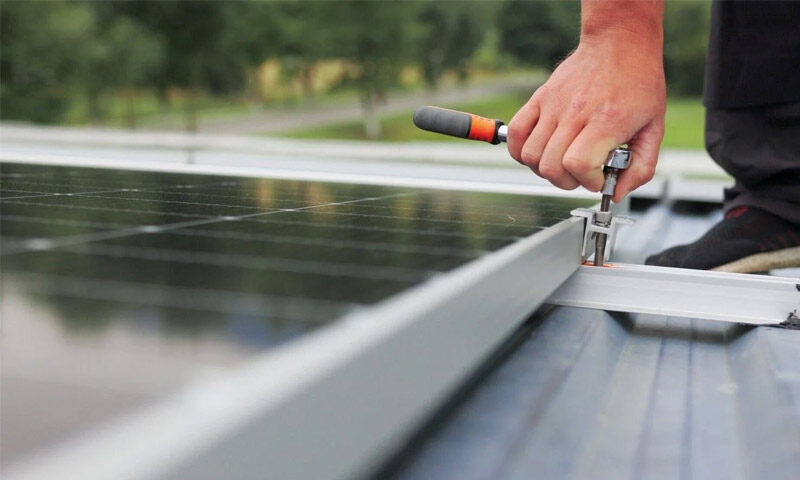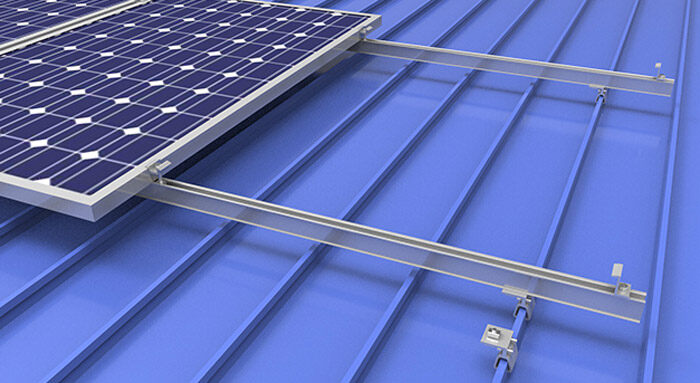Contents:
Solar panels have become one of the most popular renewable energy sources in recent years, providing both environmental benefits and financial savings. As more and more homeowners, businesses, and institutions invest in solar power, they are also considering the safety and security of these valuable assets. One common question that often arises is whether or not solar panels should be locked. This question encompasses various considerations, such as theft prevention, damage protection, and even system maintenance.
In this article, we will explore the reasons why locking solar panels may or may not be a good idea, along with the pros and cons of locking systems. Additionally, we will discuss alternatives to locking solar panels and provide practical tips on how to protect them without compromising efficiency.

Understanding the Need for Solar Panel Security
Before diving into the question of whether to lock your solar panels, it is important to understand the potential risks they face. Solar panels are valuable assets, and, like other expensive equipment, they can be vulnerable to theft or damage. These risks are heightened in areas where solar panel theft has been reported or where installations are more easily accessible.
Theft: Solar panels are typically installed on rooftops or in remote areas where they are visible but not always attended to. Their value—sometimes upwards of several thousand dollars—makes them an attractive target for thieves, especially in areas with a high prevalence of criminal activity. In fact, solar panel theft is becoming more common, particularly in urban areas or regions where solar installations are growing rapidly.
Vandalism: Another potential risk to solar panels is vandalism. Panels can be subject to various forms of damage, such as scratches, impacts, or deliberate tampering. While this type of damage is less common than theft, it still poses a significant threat, especially if the panels are left unprotected.
Environmental Factors: While not directly related to theft, solar panels can also suffer from environmental conditions such as severe weather or falling debris. For example, high winds, heavy hail, or branches from trees can cause significant damage to solar panel systems if they are not securely mounted or protected.
The Pros of Locking Solar Panels
Locking your solar panels may seem like an effective solution to protect your investment, and in some cases, it can offer significant benefits. Here are the key advantages of locking your solar panels:
-
Prevention of Theft
-
The primary reason for locking solar panels is to prevent theft. By securing the panels with locks, you make it more difficult for thieves to remove them from the roof or system.
-
Some locking systems, such as specialized mounting hardware or cable locks, can make it virtually impossible for a thief to remove the panels without considerable effort and time. This reduces the likelihood of a successful theft.
-
Deterrence to Criminal Activity
-
Even the mere presence of locks on solar panels can act as a deterrent to potential thieves. A locked system signals that the installation is protected and may lead criminals to look for easier targets.
-
Thieves often avoid secured systems because they require more time and tools to bypass. In many cases, this makes locking an effective crime prevention strategy.
-
Protection from Vandalism
-
Locking systems can also deter vandals from damaging your solar panels. While vandalism typically doesn’t result in the complete theft of panels, it can still cause costly damage.
-
A locked system makes it harder for vandals to tamper with or damage your panels, helping to preserve the integrity of your solar energy system.
-
Peace of Mind
-
Locking your solar panels can provide peace of mind, especially if your panels are installed in a location that is easily accessible or in a high-crime area. Knowing that your system is secure can reduce anxiety and ensure that you can enjoy the benefits of solar energy without worrying about the security of your equipment.
The Cons of Locking Solar Panels
While locking your solar panels can offer several advantages, it is not without its drawbacks. Here are the potential downsides of locking your solar panels:
-
Additional Costs
-
Installing locks or locking mechanisms adds to the overall cost of your solar panel installation. These additional costs may not be justified, especially if you live in an area with low theft risk or if you already have strong security measures in place.
-
Some locking systems, such as custom mounting hardware or anti-theft screws, can be relatively expensive and may require professional installation.
-
Impact on Maintenance
-
Locking your solar panels can complicate routine maintenance and repairs. If your system is locked, it may take extra time and effort to access the panels for cleaning, inspections, or other necessary upkeep.
-
Solar panels require regular maintenance to ensure their efficiency, including cleaning the surface to remove dirt and debris, checking the wiring, and monitoring the performance of the system. Locks may delay or complicate this process, potentially leading to reduced performance or even voiding warranties in some cases.
-
Possible Damage During Removal
-
If you need to remove your locked panels for maintenance, upgrades, or repairs, the process can be more difficult and time-consuming. The act of unlocking and removing the panels could also potentially cause damage, especially if the locks or mechanisms are improperly designed or installed.
-
False Sense of Security
-
While locks can act as a deterrent, they may not be foolproof. Determined criminals may still find ways to bypass or remove the locks. A locked system can provide a false sense of security, leading homeowners to neglect other important security measures.
-
It's important to remember that locks alone cannot guarantee the safety of your solar panels. A comprehensive security plan should include other measures, such as surveillance cameras or alarm systems.

Alternatives to Locking Your Solar Panels
If you are concerned about the security of your solar panels but are hesitant to invest in locks or locking systems, there are other ways to protect your installation. Here are some alternatives:
-
Surveillance Systems
-
Installing cameras around your solar panel system is one of the most effective ways to deter theft and vandalism. Motion-detection cameras or security lights can be placed near your panels to alert you to any suspicious activity.
-
Many modern surveillance systems are connected to mobile apps, allowing you to monitor your system remotely and receive instant notifications if any activity is detected.
-
Security Fencing
-
In some cases, building a fence around the perimeter of your property or solar panel installation can help prevent unauthorized access. This is especially useful for ground-mounted systems or installations located in remote areas.
-
Fencing adds an extra layer of security, making it more difficult for thieves to access the panels. Combined with other measures, such as surveillance cameras, it can significantly reduce the risk of theft or vandalism.
-
Tamper-Resistant Mounting
-
Using tamper-resistant screws or bolts to secure your solar panels can help prevent theft without the need for locks. These fasteners are designed to be difficult to remove without specialized tools, making it harder for thieves to access the panels.
-
Many solar panel manufacturers offer tamper-resistant options that are compatible with their systems. These solutions can provide added security without the complexity and cost of locks.
-
Remote Monitoring Systems
-
Some solar panel systems are equipped with remote monitoring capabilities that allow you to track the performance of your panels in real-time. If your system includes such features, you can be alerted if there are any signs of tampering or damage.
-
Remote monitoring systems can also help you spot any sudden drops in energy production, which could be indicative of theft or damage.
Conclusion
The decision to lock your solar panels ultimately depends on a variety of factors, including the location of your installation, the potential risks of theft or vandalism, and your overall security strategy. While locking systems can provide additional protection, they are not without their drawbacks, including increased costs and potential maintenance challenges.
If you live in an area with a high risk of theft or vandalism, locking your solar panels can be a useful deterrent. However, if you are in a low-risk area, it may be more cost-effective to invest in other forms of security, such as surveillance cameras or tamper-resistant mounting systems.
Ultimately, the best approach to securing your solar panels is to combine multiple security measures. Locks can be part of a comprehensive security plan, but they should not be relied upon as the sole method of protection. By taking a proactive approach and considering all available options, you can ensure that your solar investment remains safe and functional for years to come.







